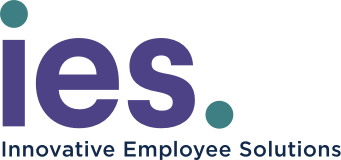Peter Limone, CPA, CGMA – President and CFO
If you run a multi-state business, you see this all the time. Inaction at the Federal of State level prompts local jurisdictions to take matter in their own hands. Mandatory sick pay is the latest in a deluge of new laws passed at a local level that will keep your HR departments busier than ever. What’s even more disconcerting is the fact that there’s no consistency between the requirements of each jurisdiction. Let’s review some of the latest laws that have passed:
Federal – Effective 01/01/2017. President Obama issued an executive order requiring federal contractors and subcontractors to provide employees with paid sick leave. Employees will accrue sick leave at a rate of 1 hour for every 30 hours worked. Maximum accrual per year is 56 hours and employees are permitted to carry over that full amount to the next year. The Department of Labor will issue regulations implementing the order within the next year. The order applies to contracts entered into after 1-1-17.
Montgomery County, MD – Effective 10/01/2016. Montgomery County, MD has passed a sick leave law providing as follows: any employee who regularly works more than 8 hours each week in Montgomery County will accrue 1 hour of sick time for every 30 hours worked. Employers with 5 or more employees must provide 56 hours of paid leave per year. Employers with fewer than 5 employees must provide 32 hours of paid leave and 24 hours of unpaid leave per year. Leave begins to accrue on the date of hire or 10/1/16, whichever is later and may be used after 90 days of employment.
Spokane, WA – Effective 1/1/2017. Spokane, Washington became the latest jurisdiction to enact a paid sick leave law. Employees earn 1 hour of paid sick leave for every 30 hours worked. Employers with fewer than 10 employees’ must allow 24 hours per year. Those with 10 or more employees must provide 40 hours.
Santa Monica, CA – Effective 1/1/2017. The City of Santa Monica enacted paid sick leave law applicable to employees working within the city limits. Employees begin accruing on 1/1/2017 or date of hire, whichever is later. May use accrued leave after 90 days of employment. During 2017, employers with 25 or fewer EE’s may limit accrual to 32 hours. Employers with 26 or more may limit to 40 hours. Beginning in 2018, maximum accrual will go up to 40 hours and 72 hours, respectively. The law allows for rolling accrual (like San Francisco) so as soon as the employees use sick time, accrual begins again. There are no limits on maximum carry over.
Seattle, WA – Effective 04/01/2016. Employers are now required to provide a written paid sick leave policy that outlines the benefits year and the employer’s policies and procedures for meeting the requirements under the sick leave ordinance. Employers must allow employees to use sick time in as little as 15 minute increments if “feasible” under the timekeeping system. The law was also amended to provide that clients of staffing companies can be held liable for staffing companies’ failure to comply with the law.
Vermont – Effective 01/01/2017. Vermont enacted a paid sick leave law. To be eligible, an employee must be employed for an average of 18 hours or more per week during a year. Employees accrue 1 hour of sick leave for every 52 hours worked. Sick leave accrual and use may be capped at 24 hours. After 12/31/18, accrual and use may be capped at 40 hours. Employees who work less than 20 weeks in a year for an employer, or whose job is scheduled to last 20 weeks or fewer is not eligible. Employers can impose a one year waiting period for employees to use accrued time but time begins to accrue on the date of hire or 1/1/2017, whichever is later.
Minneapolis, MN – Effective 07/01/2017. Applies to employers with 6 or more employees in Minneapolis. Employees accrue 1 hour of sick leave per hour worked up to a maximum of 48 hours per year. Employees may carry over up to 80 hours of unused sick time. Accrual begins on date of hire or effective date of law, whichever is later and employees may use beginning 90 calendar days after date of hire.
These are just some of the latest examples. There are many other jurisdictions that either have passed or are considering passing paid sick leave laws. It’s a daunting task for your HR department to keep up with these and other ever changing employment laws. An experienced employer of record can help you stay in compliance and avoid penalties and the risk of lawsuits. Reach out to Innovative Employee Solutions and find out more.






